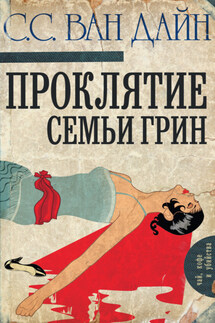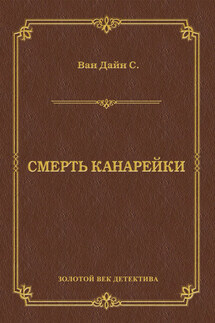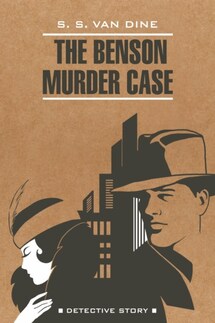The «Canary» Murder Case / Смерть Канарейки. Книга для чтения на английском языке - страница 4
Vance slowly took a cigarette from his case and tapped it on the arm of his chair.
“Ah! So you are going to substitute the conviction of the innocent for the acquittal of the guilty?”
Markham was nettled; turning in his chair he frowned at Vance.
“I won’t pretend not to understand your remark,” he said acidulously. “You’re back again on your favorite theme of the inadequacy of circumstantial evidence as compared with your psychological theories and aesthetic hypotheses.”
“Quite so,” agreed Vance carelessly. “Y’ know, Markham, your sweet and charmin’ faith in circumstantial evidence is positively disarming. Before it, the ordin’ry powers of ratiocination are benumbed. I tremble for the innocent victims you are about to gather into your legal net. You’ll eventually make the mere attendance at any cabaret a frightful hazard.”
Markham smoked a while in silence. Despite the seeming bitterness at times in the discussions of these two men, there was at bottom no animosity in their attitude toward each other. Their friendship was of long standing, and, despite the dissimilarity of their temperaments and the marked difference in their points of view, a profound mutual respect formed the basis of their intimate relationship.
At length Markham spoke.
“Why this sweeping deprecation of circumstantial evidence? I admit that at times it may be misleading; but it often forms powerful presumptive proof of guilt. Indeed, Vance, one of our greatest legal authorities has demonstrated that it is the most powerful actual evidence in existence. Direct evidence, in the very nature of crime, is almost always unavailable. If the courts had to depend on it, the great majority of criminals would still be at large.”
“I was under the impression that this precious majority had always enjoyed its untrammelled freedom.”
Markham ignored the interruption.
“Take this example: A dozen adults see an animal running across the snow, and testify that it was a chicken; whereas a child sees the same animal, and declares it was a duck. They thereupon examine the animal’s footprints and find them to be the web-footed tracks made by a duck. Is it not conclusive, then, that the animal was a duck and not a chicken, despite the preponderance of direct evidence?”
“I’ll grant you your duck,” acceded Vance indifferently.
“And having gratefully accepted the gift,” pursued Markham, “I propound a corollary: A dozen adults see a human figure crossing the snow, and take oath it was a woman; whereas a child asserts that the figure was a man. Now, will you not also grant that the circumstantial evidence of a man’s footprints in the snow would supply incontrovertible proof that it was, in fact, a man, and not a woman?”
“Not at all, my dear Justinian,” replied Vance, stretching his legs languidly in front of him; “unless, of course, you could show that a human being possesses no higher order of brains than a duck.”
“What have brains to do with it?” Markham asked impatiently. “Brains don’t affect one’s footprints.”
“Not those of a duck, certainly. But brains might very well—and, no doubt, often do—affect the footprints of a human being.”
“Am I having a lesson in anthropology, Darwinian adaptability, or merely metaphysical speculation?”
“In none of those abstruse subjects,” Vance assured him. “I’m merely stating a simple fact culled from observation.”










